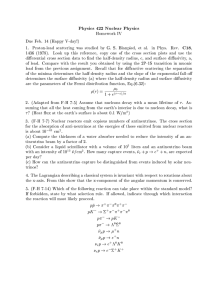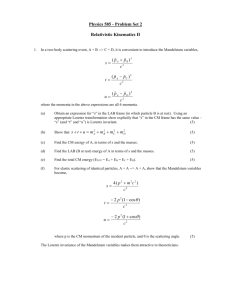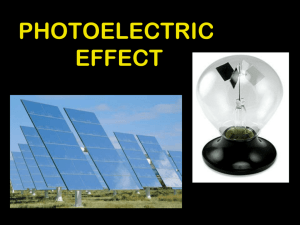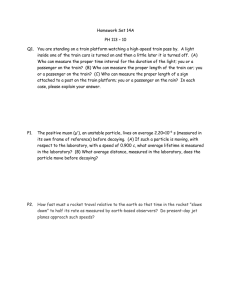PH422: Nuclear Physics Homework II Due January 31
advertisement
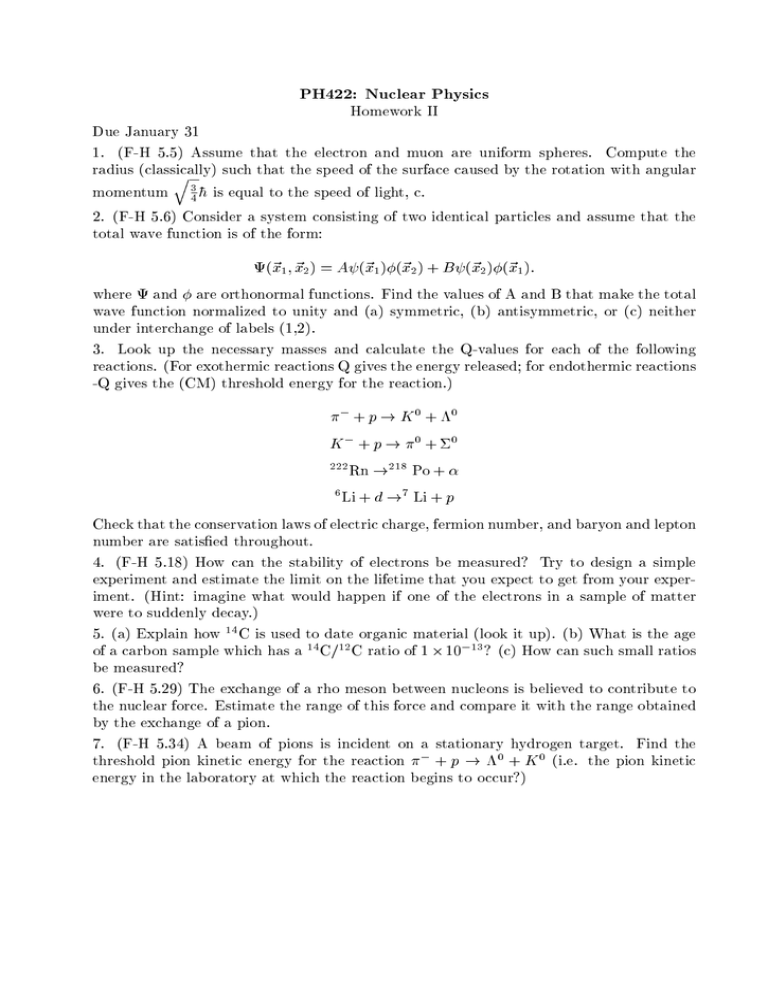
PH422: Nuclear Physics Homework II Due January 31 1. (F-H 5.5) Assume that the electron and muon are uniform spheres. Compute the radius (classically) q 3 such that the speed of the surface caused by the rotation with angular momentum 4 h is equal to the speed of light, c. 2. (F-H 5.6) Consider a system consisting of two identical particles and assume that the total wave function is of the form: (~x1 ; ~x2 ) = A (~x1 )(~x2 ) + B (~x2 )(~x1 ): where and are orthonormal functions. Find the values of A and B that make the total wave function normalized to unity and (a) symmetric, (b) antisymmetric, or (c) neither under interchange of labels (1,2). 3. Look up the necessary masses and calculate the Q-values for each of the following reactions. (For exothermic reactions Q gives the energy released; for endothermic reactions -Q gives the (CM) threshold energy for the reaction.) + p ! K 0 + 0 K + p ! 0 + 0 222 Rn !218 Po + 6 Li + d !7 Li + p Check that the conservation laws of electric charge, fermion number, and baryon and lepton number are satised throughout. 4. (F-H 5.18) How can the stability of electrons be measured? Try to design a simple experiment and estimate the limit on the lifetime that you expect to get from your experiment. (Hint: imagine what would happen if one of the electrons in a sample of matter were to suddenly decay.) 5. (a) Explain how 14 C is used to date organic material (look it up). (b) What is the age of a carbon sample which has a 14 C/12 C ratio of 1 10 13 ? (c) How can such small ratios be measured? 6. (F-H 5.29) The exchange of a rho meson between nucleons is believed to contribute to the nuclear force. Estimate the range of this force and compare it with the range obtained by the exchange of a pion. 7. (F-H 5.34) A beam of pions is incident on a stationary hydrogen target. Find the threshold pion kinetic energy for the reaction + p ! 0 + K 0 (i.e. the pion kinetic energy in the laboratory at which the reaction begins to occur?)
